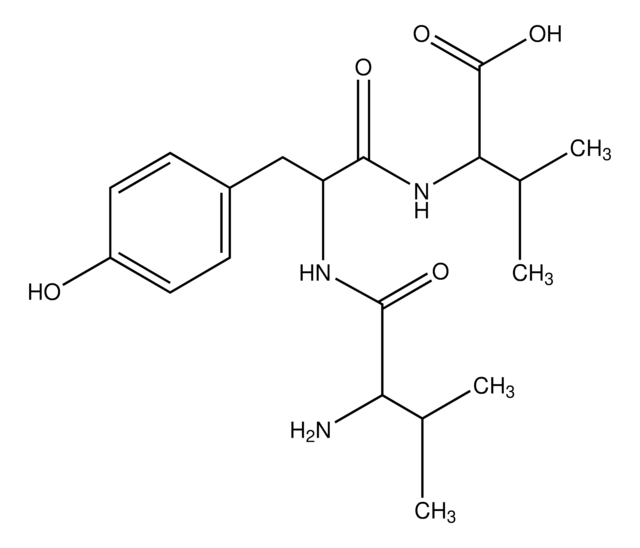L9133
Leucine Enkephalin acetate salt hydrate
≥95% (HPLC)
Synonym(s):
Leucine Enkephalin
About This Item
Recommended Products
Quality Level
Assay
≥95% (HPLC)
storage temp.
−20°C
SMILES string
O.CC(O)=O.CC(C)C[C@H](NC(=O)[C@H](Cc1ccccc1)NC(=O)CNC(=O)CNC(=O)[C@@H](N)Cc2ccc(O)cc2)C(O)=O
InChI
1S/C28H37N5O7.C2H4O2.H2O/c1-17(2)12-23(28(39)40)33-27(38)22(14-18-6-4-3-5-7-18)32-25(36)16-30-24(35)15-31-26(37)21(29)13-19-8-10-20(34)11-9-19;1-2(3)4;/h3-11,17,21-23,34H,12-16,29H2,1-2H3,(H,30,35)(H,31,37)(H,32,36)(H,33,38)(H,39,40);1H3,(H,3,4);1H2/t21-,22-,23-;;/m0../s1
InChI key
QKDIOZBQOQJXFR-XQCXOTTHSA-N
Gene Information
human ... OPRD1(4985) , OPRM1(4988)
mouse ... OPRD1(18386) , OPRM1(18390)
rat ... OPRD1(24613) , OPRM1(25601)
Amino Acid Sequence
General description
Application
Biochem/physiol Actions
Storage Class Code
11 - Combustible Solids
WGK
WGK 3
Flash Point(F)
Not applicable
Flash Point(C)
Not applicable
Personal Protective Equipment
Choose from one of the most recent versions:
Already Own This Product?
Find documentation for the products that you have recently purchased in the Document Library.
Customers Also Viewed
AS INHIBITOR OF PROTEASE ENZYMES OF ENKEPHALINS
Our team of scientists has experience in all areas of research including Life Science, Material Science, Chemical Synthesis, Chromatography, Analytical and many others.
Contact Technical Service

![[Glu1]-Fibrinopeptide B human ≥90% (HPLC)](/deepweb/assets/sigmaaldrich/product/structures/122/537/7ead5c32-cb67-4325-9ce7-66c8dec24bdd/640/7ead5c32-cb67-4325-9ce7-66c8dec24bdd.png)

![[Met5]Enkephalin acetate salt hydrate ≥95.0% (HPLC), powder](/deepweb/assets/sigmaaldrich/product/structures/158/699/80b4b65b-7e48-49a2-ba61-4433cf1f375c/640/80b4b65b-7e48-49a2-ba61-4433cf1f375c.png)
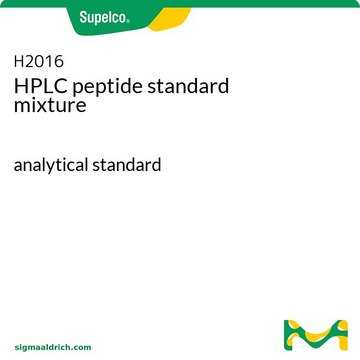

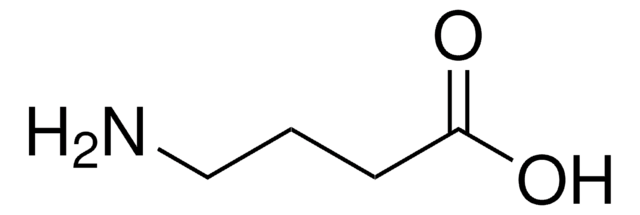


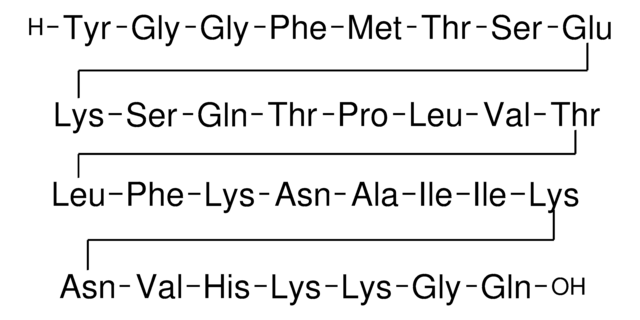
![[D-Ala2]-Leucine enkephalin ≥97% (HPLC)](/deepweb/assets/sigmaaldrich/product/structures/205/481/4fd123c0-14c7-4f90-8bdc-9e54a4bea7f1/640/4fd123c0-14c7-4f90-8bdc-9e54a4bea7f1.png)
![[D-Ala2, D-Leu5]-Enkephalin acetate salt ≥95% (HPLC)](/deepweb/assets/sigmaaldrich/product/structures/934/176/d990e568-42df-43e9-a231-da7a3d9d7687/640/d990e568-42df-43e9-a231-da7a3d9d7687.png)
![[D-Ala2, N-Me-Phe4, Gly5-ol]-Enkephalin acetate salt ≥97% (HPLC)](/deepweb/assets/sigmaaldrich/product/structures/227/014/768064c2-9ae6-47bd-8550-e2aa5c3b61de/640/768064c2-9ae6-47bd-8550-e2aa5c3b61de.png)
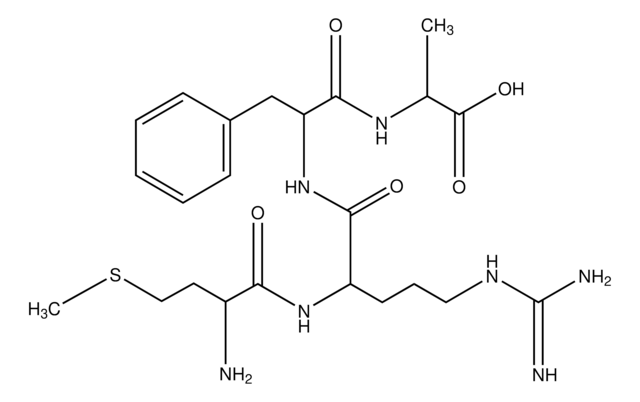

![[D-Ala2]-Deltorphin II ≥97% (HPLC)](/deepweb/assets/sigmaaldrich/product/structures/289/271/db4c3fc4-8ba9-46ef-b214-158c9758871f/640/db4c3fc4-8ba9-46ef-b214-158c9758871f.png)
